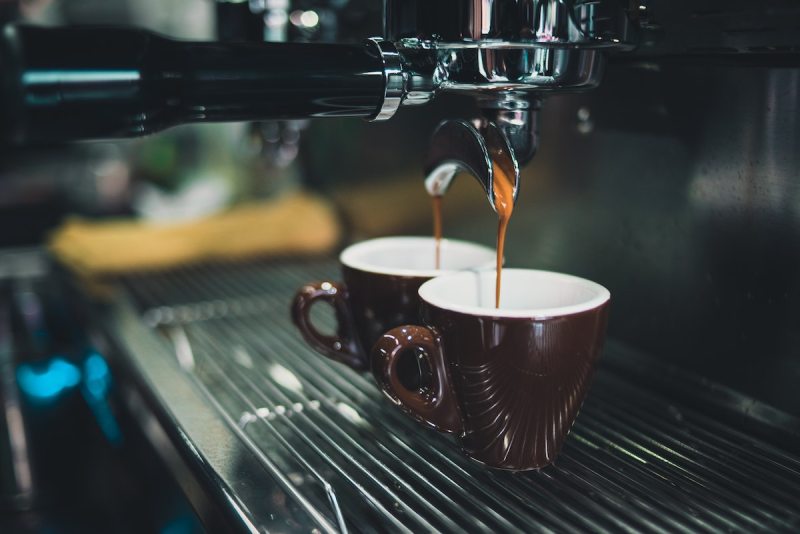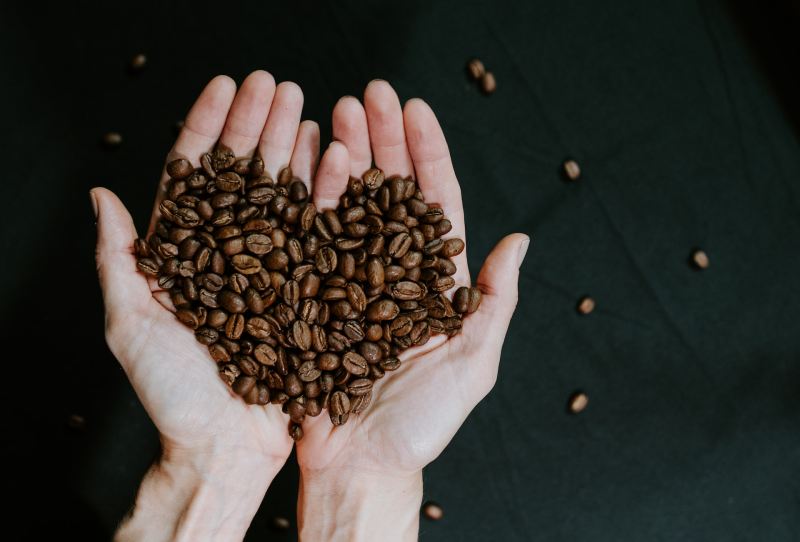Every coffee lover knows that not all coffee is created equally. If you’ve found yourself wondering how much caffeine is in a cup of coffee, you’re not alone. However, this commonly asked question does not have a simple answer, as the caffeine in coffee differs depending on the type of roast.
Think you’re a coffee connoisseur? Let’s dive into a comparison of light roast vs. dark roast coffee to test your knowledge. Below, you’ll learn more about the caffeine content in each coffee roast and explore a comparison of flavor notes. Whether you prefer the bold, rich aroma of a dark roast coffee or the light notes of a light roast, this guide will make it easier to narrow down your coffee order.
What is stronger: Light or dark roast coffee?

The strength of coffee roasts is often confused with caffeine content, which are both unrelated. In terms of strength, light roast coffee offers a more delicate taste and appears lighter in color. This coffee roast is considered milder in taste compared to dark roast coffee. You might find light roast coffee called “breakfast blend,” as it offers a light, delicate flavor.
On the other hand, dark roast coffee offers a stronger, bolder taste. Since dark roast coffee beans take longer to roast, the result is a more robust coffee. Coffee lovers who enjoy a rich, bold taste often prefer dark roast coffee over light roast coffee.
Light roast vs. dark roast caffeine content

Ultimately, the choice between light and dark roast coffee in terms of taste comes down to your personal preference. However, don’t let the names of these coffee roasts fool you. A dark roast coffee that is bold in taste and appearance does not necessarily contain more caffeine. Light roast coffee often contains more caffeine than dark coffee roasts.
Dark roast coffee beans require a longer roasting process, which can mean some caffeine content is lost in the process. Due to the high temperatures, dark roasts generally have less caffeine per serving than light roasts. However, it’s important to remember that this can vary from cup to cup, depending on the measurement/weight of coffee beans used in the roast.
Which is sweeter: Light or dark roast?

Most coffee lovers agree that light roast coffee tastes slightly sweeter than dark roast coffee, though individual tastes may vary. The sweeter taste of light roast coffee is due to the natural sugars in the beans and the shortened roasting process. As a result, light roast coffee offers a brighter, more delicate, and more acidic taste.
Dark roast coffee needs more time to roast, which leads to the caramelization of the beans. In turn, this can remove some of the beans’ natural sweetness, leading the final brew to be darker, bolder, and more bitter. The type of coffee beans used, method of brewing, and weight of beans can also impact the sweetness of a coffee roast. Many cold coffees, such as iced coffee or cold brew, may have a stronger, more bitter taste.
Does light roast taste better?
Which coffee roast tastes better is up to personal taste preferences. Of course, how you choose to take your coffee (cream, sugar, etc.) will also impact its taste and enjoyability. Although light roast contains slightly more caffeine than roast coffee, the difference is negligible. Some coffee drinkers have a strong preference for roast, while others enjoy both coffee roasts.
Medium roast coffee is an excellent option for coffee drinkers who find light roast too light, yet dark roast too bitter. This coffee roast will be slightly lighter in color than a dark roast yet darker in appearance than light roast coffee. The flavor of a medium roast coffee blend is smooth and well-rounded, making it a classic favorite among all coffee lovers.
Due to the versatility of medium roast coffee, it is often used for methods beyond traditional drip (hot) coffee. Medium roast coffee blends can be used in pour-over methods and for cold coffee beverages.
Which is the healthiest coffee: Light or dark roast?

Neither light roast coffee nor dark roast coffee offers health advantages over the other. Both coffee roasts offer general health benefits that apply to any roast of coffee. When consumed appropriately, coffee could help you extend your lifespan, increase your energy levels, or even help you reduce your risk of certain chronic diseases, such as heart disease.
If you seek to take advantage of the health benefits of caffeine, you might prefer to drink light roast coffee due to its slightly higher caffeine content. For those who have medical conditions that advise against excessive caffeine consumption, a dark roast coffee or decaf blend is likely preferred.
Dark roast coffee tends to be less acidic, making it a better choice for a coffee that is easier on the stomach. On the other hand, light roast coffee contains more antioxidants when compared to other coffee roasts.
Finding your perfect blend
The decision between drinking light and dark roast coffee comes down to personal preference. Light roast coffees offer a slightly larger caffeine boost and a brighter, lighter taste. Meanwhile, those who prefer a rich, bold taste may prefer dark roast coffees.
Not sure which coffee blend you prefer? These are our favorite coffee bean brands for 2024, offering a great selection of light, medium, dark, and extra-dark coffee roasts.
Medium roast coffee
We’ve compared light and dark roast coffees, but where does that leave medium roast coffee? A medium roast coffee is a good “in-between” between dark and light roast. Featuring a medium, balanced flavor profile that is not too bold or too mild, a medium roast is the perfect choice for any coffee lover to enjoy. Medium roast coffee beans are medium-brown in color and are roasted at temperatures between 410 and 440 degrees Fahrenheit.
While dark roast tends to be used for espresso and cold brew coffee, medium roast is the most versatile of coffee blends. Ideal for many brewing styles, medium roast coffee can be brewed via a French press coffee maker, the pour-over method, or a standard drip coffee maker.




